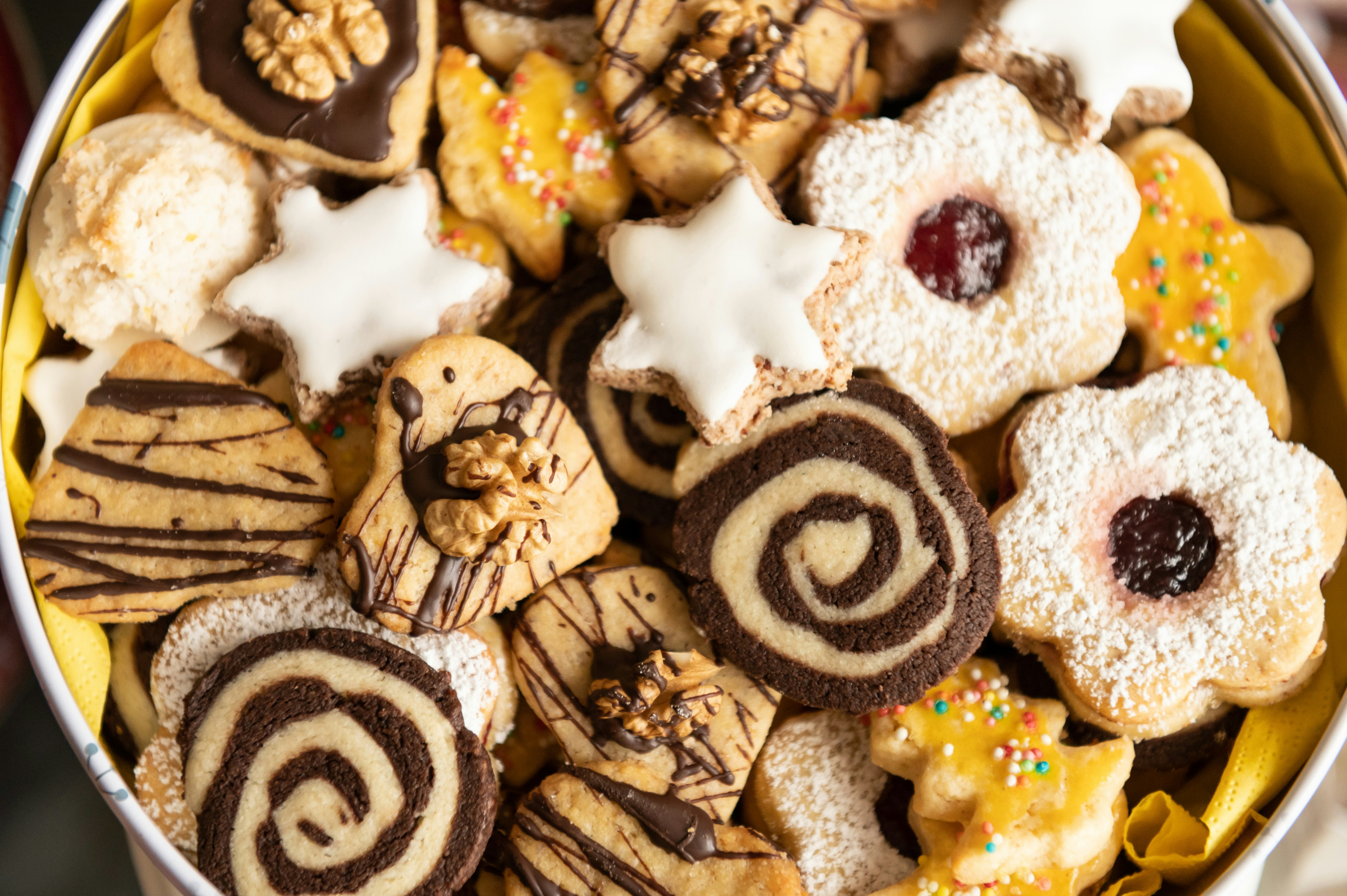
Sugar, shortbread, snickerdoodle, or RSV — who knows what you’ll be getting this year at the annual cookie swap?
The innocent holiday tradition could be a breeding ground for catching someone else’s cold. If you’re not familiar with the cookie swap, the gist is this: Each participant bakes a batch (or several) of cookies at home. Next, all participants convene at a meeting space with their homemade cookies and Tupperware in tow. Now, the swapping commences. Everyone fills their containers with a variety of baked goods crafted by their friends. By the end of the event, all head home with an impressive assortment of cookies to enjoy over the holidays.
Today, it’s difficult not to view the annual tradition through a skeptical, germaphobic lens. Most holiday gatherings look (and feel) different from celebrations in years pre-2020. But it seems especially cruel that the most delicious occasions — cookie swaps and big family meals — coincide with the sickest season of them all.
“Cookie swaps happen in the peak respiratory virus season [when many people will be exposed to] some combination of RSV, flu, and Covid,” Thomas Russo, SUNY Distinguished Professor and Chief, Division of Infectious Diseases, tells Inverse.
Peak Covid days called for the cancellation of all things fun. So in 2023, is it safe to bring back the cookie swap tradition?
“People want to get back to normal,” Russo says. The infectious disease doctor adds, “I think people can [get together] safely, they just need to use good judgment.”
So what does good judgment look like when it comes to exchanging home-baked sweets at a cookie swap event?
You should avoid sneezing on your cookies, yes, but there are less obvious ways to ensure your friends and family can enjoy your sweet treats without falling sick for the rest of December.
Wash your hands, then wash them again
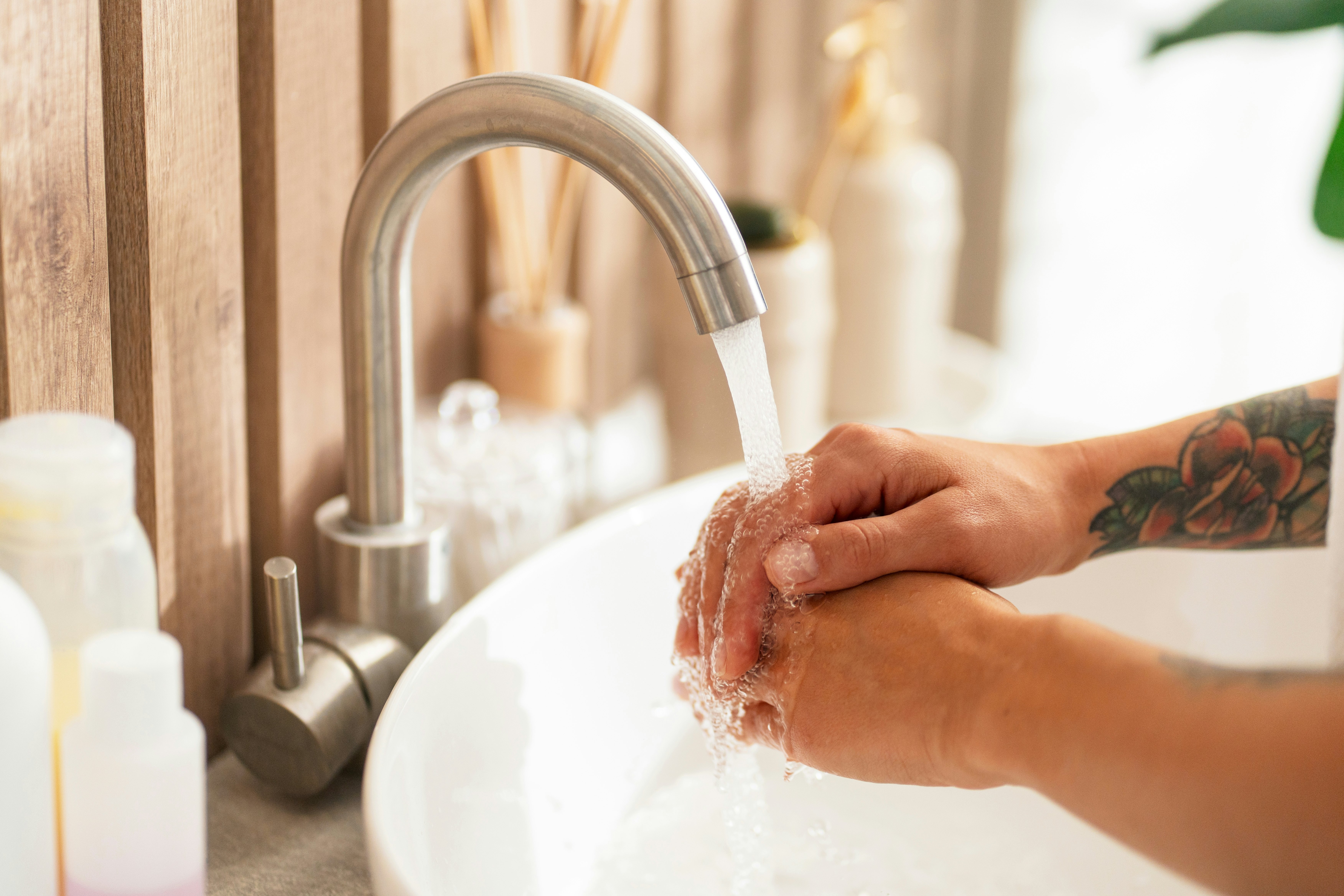
Whether you’re infected by a respiratory virus or not, keeping your hands clean is of the utmost importance when it comes to cooking food for others. The simple act of handwashing — with soap and running water — can prevent the spread of bacteria and viruses, as the CDC highlights.
While the risk is low, it is possible to pass along these now-infamous winter viruses if cooking with unclean hands.
“If a person knowingly or unknowingly has some sort of infection and goes ahead and contaminates that cookie through not washing their hands, those viruses and bacteria contaminate the cookie,” Russo says. While the viruses “lose viability over time,” it is possible to pass on an infection here, as the germs can live on “for hours to days-plus.”
You’ll want to keep your hands clean at the cookie event, too. Even though you won’t be touching the cookies with bare hands (more on this below), washing your hands will lower the risk for any germ swapping as you hug old friends, handle door knobs, and high-five over recipes.
Swap outdoors, if you can
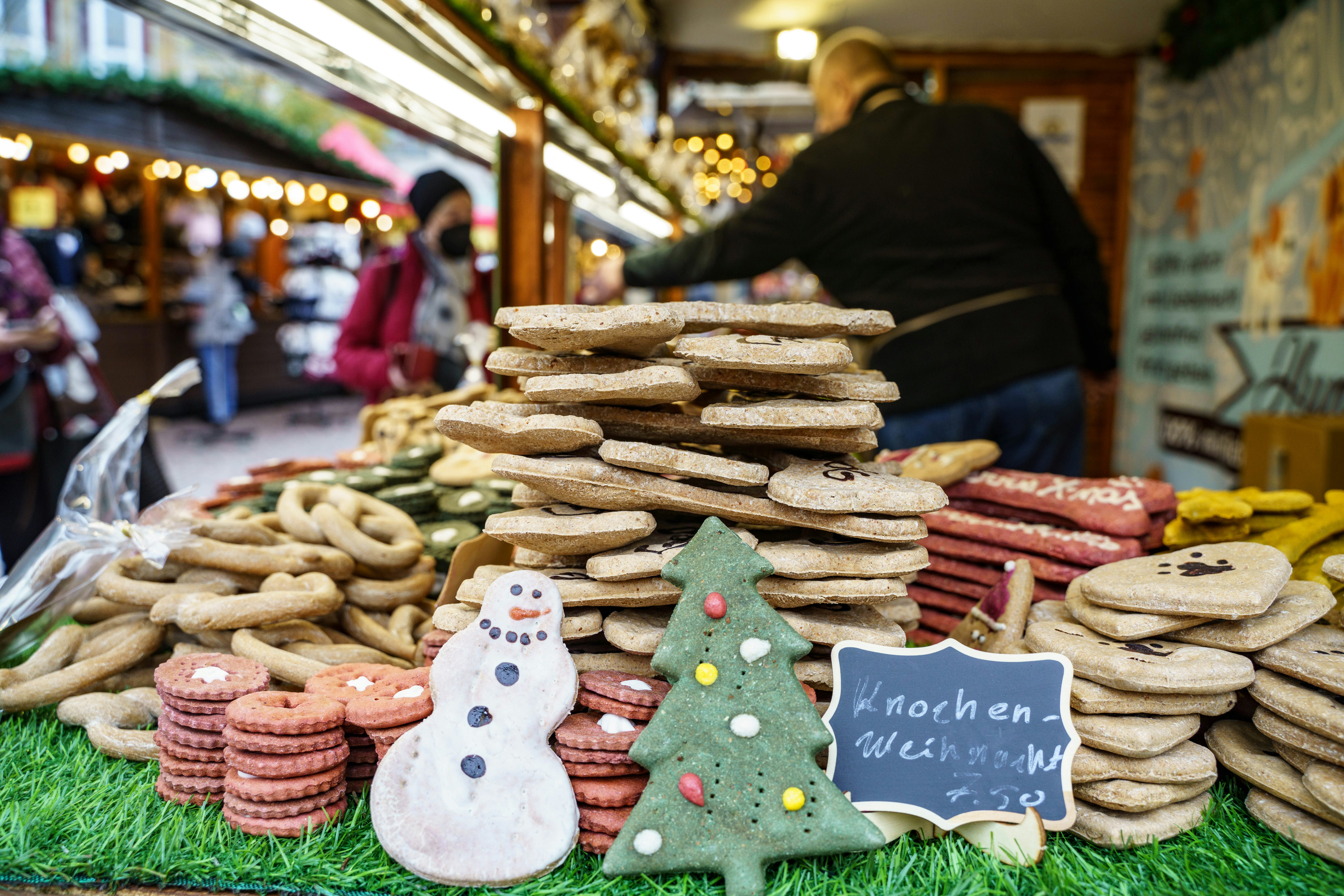
“Your risk of infection at the cookie swap is significantly less from the cookies than from the people at the cookie swap,” says Russo.
As most will remember from pandemic days, gathering outside lowers the risk of contracting infections. Most homes are poorly ventilated because they’re designed to keep the heat in. To keep things safe and healthy, you’d be better off hosting your cookie swap in the garage (with the door open) than in your dining room (if the weather miraculously permits).
Get nerdy about food safety
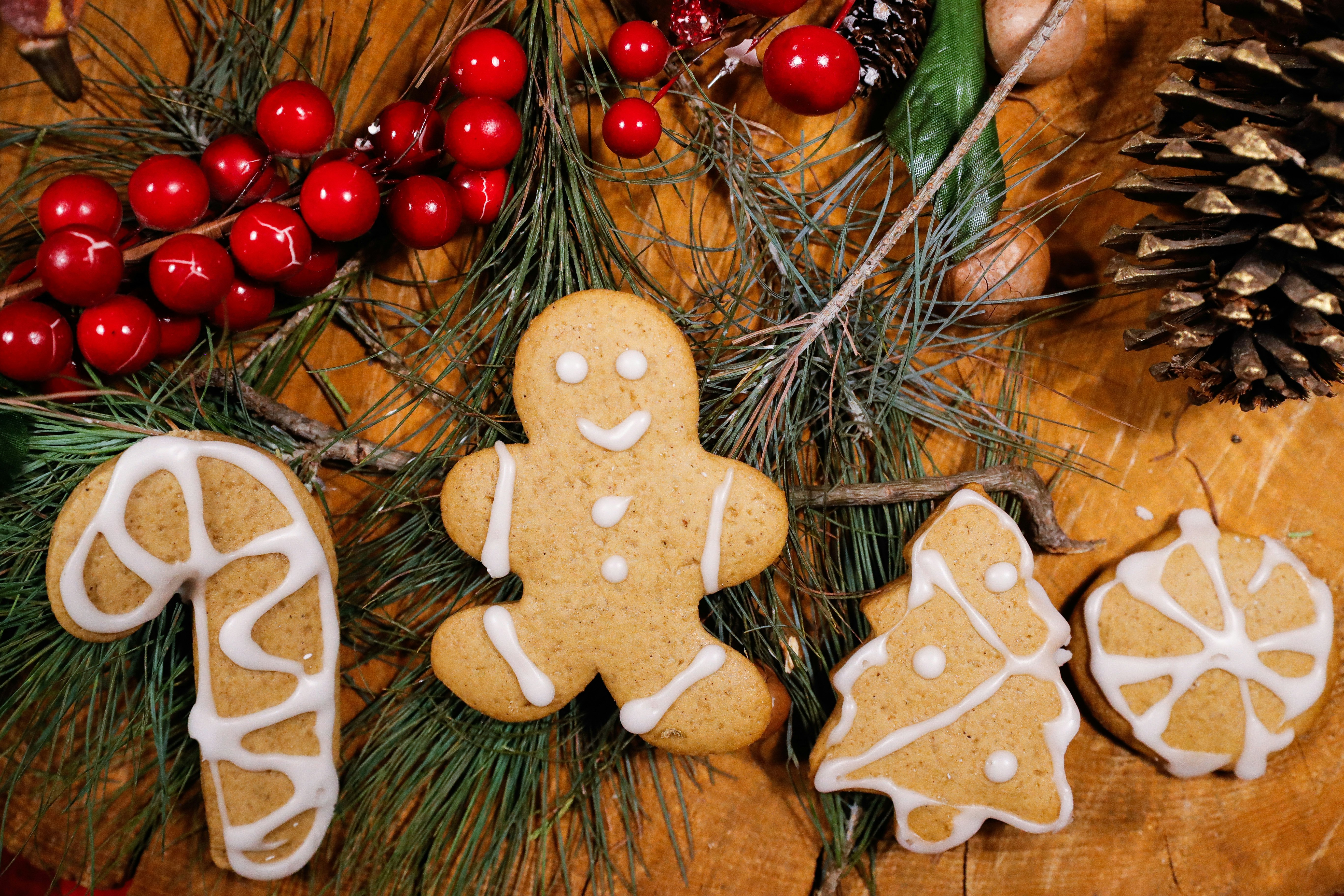
Restaurants and commercial kitchens follow strict regulations to keep foods as germ-free as possible. When it comes to the cookie swap, it’s worth adopting some of these guidelines, even if it feels a bit funny and formal.
When swapping cookies, use serving utensils to prevent hands from touching cookies. Place each utensil on a plate by every container of cookies and keep it rested on the plate — not in the cookie storage container. If you can’t bother with plates, at the very least, keep the handle of the serving utensil outside of the food container, as this is the part that will come into contact with hands.
If you do touch a cookie or two with your bare hands, those are yours to claim. You will be the only victim of your contamination.
If you’re wearing long sleeves, roll them up when the actual swapping goes down. Your sleeves could dangle in or drag across the treats, increasing the risk of contamination. (If you have children participating in the swap, double down on this tactic: Sleeves seemingly serve as the universal tissue for kids of a certain age).
When in doubt, wear a mask

There are plenty of good reasons to wear a mask during your holiday cookie swap. Maybe you recently spent some time with a sniffly person. Even if you’re completely asymptomatic, your virus could be in its incubation period, Dr. Russo says, so don’t rule out the possibility that you could be infected.
Other reasons to mask up? You live with someone who’s immunocompromised. You’re concerned that not all of the guests will be up-to-date on their Covid vaccinations (and in fact, this is likely: While data varies state by state, Dr. Russo says only a small percent of the population has received the most recent vaccine. In New York State, just 8 percent of people are up to date, according to the New York State Department of Health.)
“People sort of know Covid hasn't gone away and they know what to do to decrease the spread, but they’re carrying on as normal,” Dr. Russo says. While donning a mask or taking any kind of extra precaution might feel so 2020, the consequences of these illnesses are still a reality in 2023. Some 500 people in the U.S. die from Covid-19 every single day.
Do the right thing
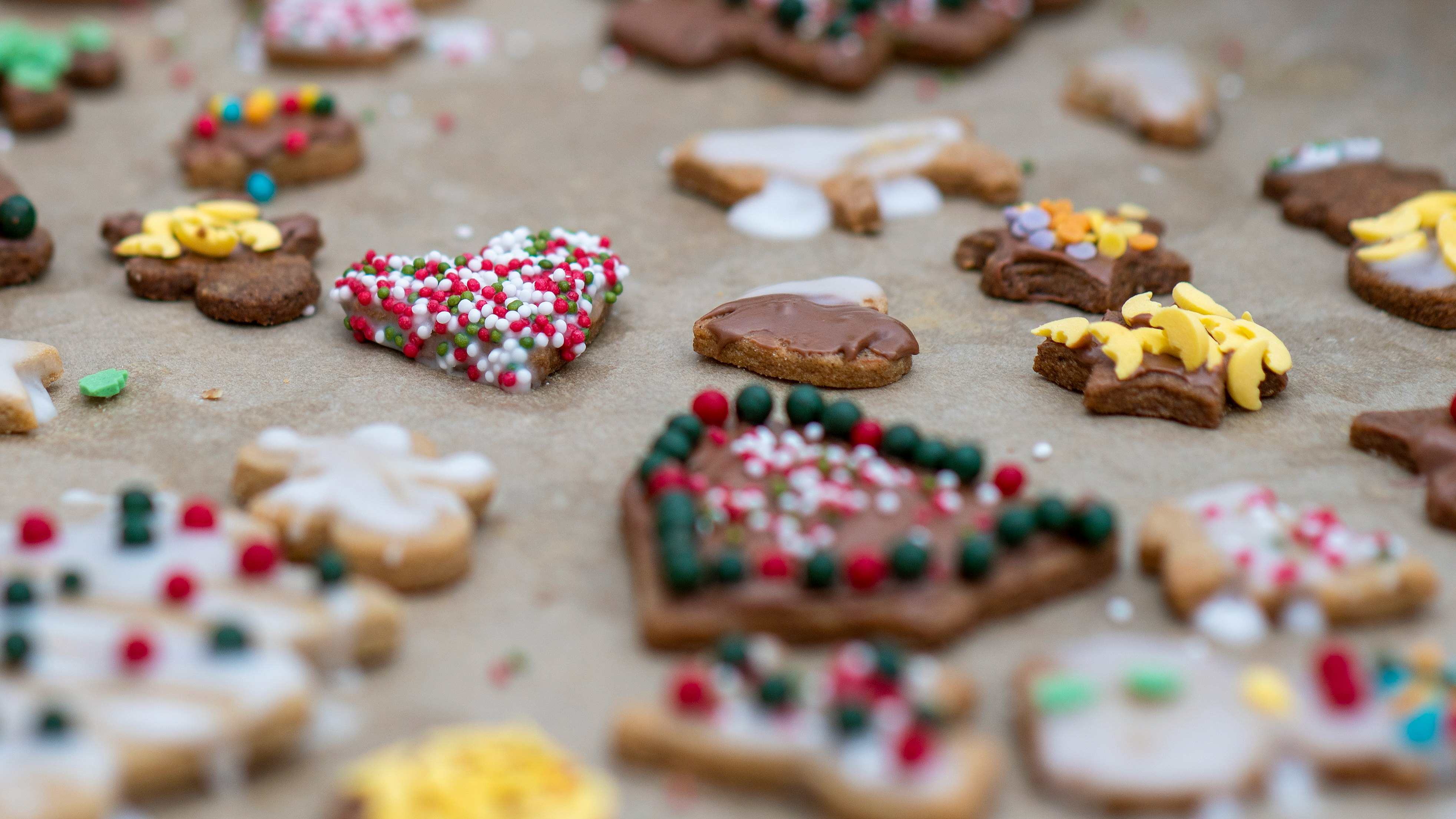
It’s understandable for folks to want to stop living in fear and live a life where pandemic precautions are long in the past. On the other hand, some people have yet to shed their anxieties when it comes to indoor gatherings. It’s all a very delicate dance to dance.
“There’s a risk of doing anything — but there are also benefits,” says licensed psychologist Marni Amsellem, Ph.D.
In terms of benefitting a person’s mental health, a cookie swap offers “that opportunity to be social and to be part of a shared experience,” which has been shown to boost a person’s psychological and physiological health.
If you’re feeling physically unwell, the most responsible thing to do is to stay home. You can have a proxy collect your cookies for you, or if you’re stuck with your own batch, enjoy them at your leisure.
“The great thing is that cookies do freeze,” Amsellem says.







